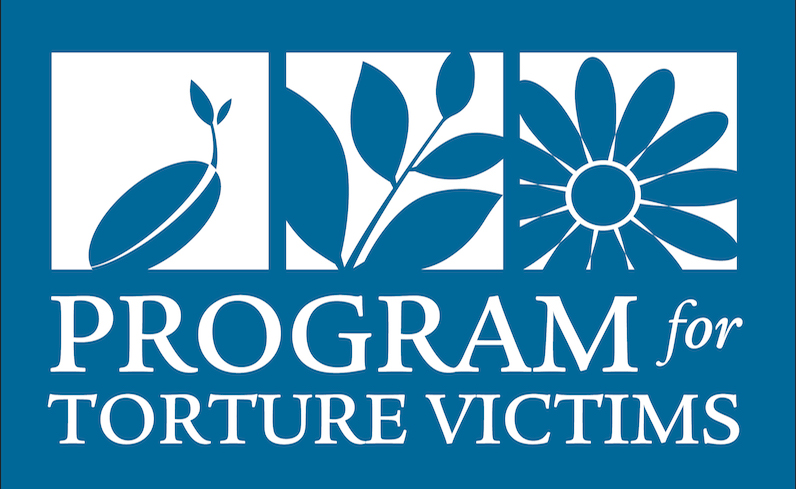Publications
Publications by PTV staff provide important educational, training, and advocacy materials, that are used world-wide by physicians, service providers, and working professionals to document and better understand the affects of torture on the individual and society.
Bibliography of Articles:
Berthold, S. M. (2009). [Review of the book Images of America: Cambodians in Long Beach]. Journal of Southeast Asian American Education and Advancement.
Berthold, S.M., Wong, E.C., Schell, T.L., Marshall, G.N., Elliott, M.N., Takeuchi, D. & Hambarsoomians, K. (September 2007). U.S. Cambodian Refugees’ Use of Complementary and Alternative Medicine for Mental Health Problems. Psychiatric Services, 58 (9), 1212-1218.
Berthold, S. M. (2007). Transcultural Approaches in Working with Traumatized Refugee and Asylum-Seeking Children, Youth and Their Families. In N. Cohen, T. Tran, & S. Y. Rhee (Eds.). Multicultural Approaches in Caring for Children, Youth, and Their Families. (pp. 269-311). Boston, MA: Allyn and Bacon.
Chang, J., Rhee, S., & Berthold, S. M. (2008). Child abuse and neglect in Cambodian refugee families: Characteristics and implications for practice. Child Welfare, 87(1), 141-60.
Deutsch, A. (2007). Secuelas de la Tortura en el Individuo, la Familia y la Sociedad, Chapter in the book: Atencion Integral a Victimas de Tortura en Procesos de Litigio, Inter-American Institute of Human Rights, San José, Costa Rica.
Fernando, G., Miller, K.E., & Berger, D. (2010). Growing pains: The impact of traumatic and daily stressors on emotional and psychosocial functioning and development of children in Sri Lanka. disasters and their Impact on child development. Child Development, 81(4), 1192-1210.
Fernando, G., Miller, K.E., & Berger, D. (in press). The impact of potentially traumatic and daily stressors on emotional and psychosocial functioning and development of children in Sri Lanka. Disasters and Their Impact on Child Development, a special issue of Child Development.
Fernando, G. (2008, April). Assessing Mental Health and Psychosocial Status in Traditional & Collectivistic Cultures: The Case of Sri Lanka. American Journal of Orthopsychiatry, 78 (2), 229-239.
Fernando, G. (2007). A space of one’s own. [Book review, Cultural Psychology of Immigrants]. Cultural Diversity and Ethnic Minority Psychology, 13, 265-266.
Gangsei, D. & Deutsch, A. C. (2007). Psychological Evaluation of Asylum Seekers as a therapeutic Process. Torture: Journal on Rehabilitation of Torture Victims and Prevention of Torture, 17 (2), 79-87.
Jaranson, J.M., & Quiroga, J. (2011). Evaluating the services of torture rehabilitation programmes: History and recommendations. Torture, 21(2), 98-140.
Marshall, G.N., Berthold, S.M., Schell, T.L., Elliott, M.N., Chun, C-A, & Hambarsoomians, K. (October 2006). Rates and correlates of seeking mental health services among Cambodian refugees. American Journal of Public Health, 96 (10), 1829-1835.
Miller, K.E., & Fernando, G. (2008). Epidemiological assessments in emergency settings: Recommendations for enhancing a potentially useful tool. Intervention, 6, 255-230.
Miller, K.E., Fernando, G., & Berger, D. E. (2009). Daily stressors in the lives of Sri Lankan youths: A mixed methods approach to assessment in a context of war and natural disaster. Intervention, 7.
Moio, J.A. (2008). Resiliency and recovery: An exploration of meaning and personal agency for women survivors of state sponsored torture (Doctoral Dissertation). Available from Dissertations and Theses database. (UMI No. 3346914)
Moio, J. (2007). Torture: Advances and limitations in explanatory theories and implications for cross cultural social work. Journal of Ethnic and Cultural Diversity in Social Work, 15 (3-4), 1-30.
Nutkiewicz, M & Durocher, R. (2007). “The Aftermath of Torture” in L.A. Psychologist. PTV publishes a biannual newsletter entitled, “Stepping Forward.” (Copies were submitted with each semi-annual report).
Quiroga J. (2009). Torture in children. Torture. 12:19(2): 66-87.
Quiroga J. (2007). Técnicas de la entrevista con victimas de tortura. Investigación de la Historia del trauma. In Consideraciones para la Investigación de la Tortura en México. Publicado por la Oficina en México del Alto Comisionado de Naciones Unidas.
Willard, Cynthia (2013), Rabin M., Lawless M. The Prevalence of Torture and Associated Symptoms in United States Iraqi Refugees. Journal of Immigrant and Minority Health, , Volume 16, Issue 6, pp 1069–1076.
Wong, E.C., Marshall, G.N., Schell, T.L., Elliot, M.N., Hambarsomians, K., Chun, C-A., & Berthold, S.M. (2006). Barriers to Mental Health Care Utilization for U.S. Cambodian Refugees. Journal of Consulting and Clinical Psychology, 74 (6), 1116-1120.
Zunxunegui MV, Alvarado BE. Garcia-Araneda N, Quiroga J. Privatization of health care and the health and functional status of the Chilean elderly population. The Journal of Aging and Emergency Economies (JAEE). 1 (2):3-21, 2009.
We highly recommend that your reading begin with this desk study:
Torture Journal
Volume 15, No. 2-3, 2005, ISSN 1018-8185
Journal on Rehabilitation of Torture Victims and Prevention of Torture
ISSN (Online): 1997-3322
Key title: Torture (Online)
Abbreviated key title: Torture (Online)
ISSN (Print): ISSN 1018-8185
Contents
Politically-motivated torture and its survivors (PDF, Adobe Acrobat file, 826 KB)
A desk study review of the literature
Jose Quiroga and James M. Jaranson
